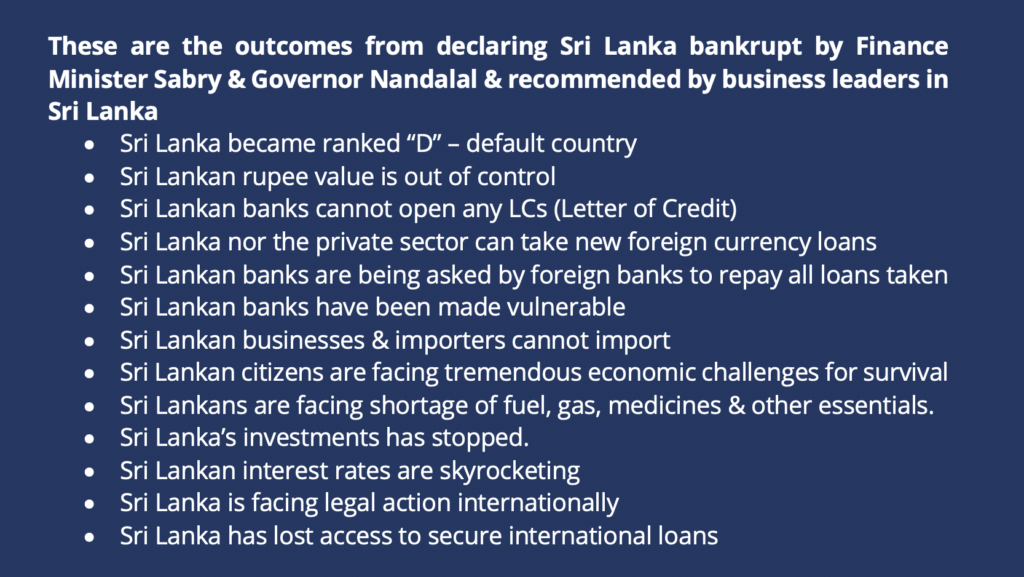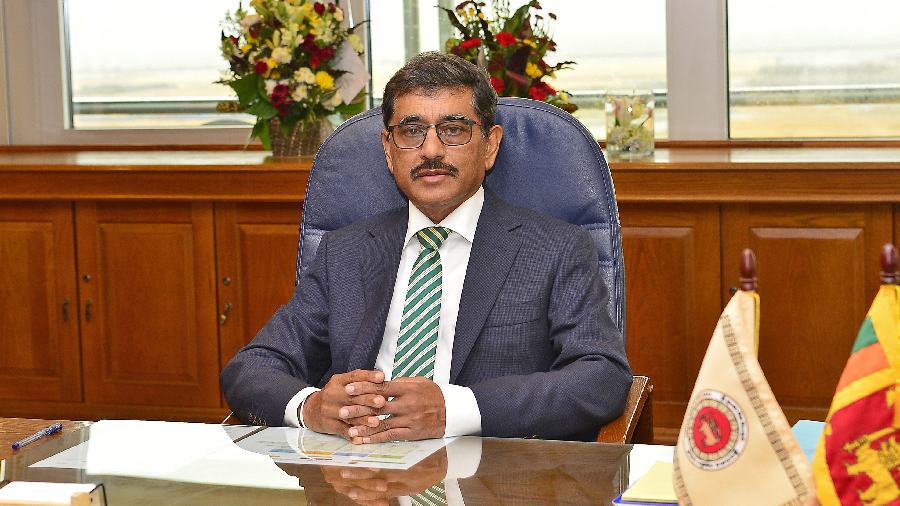By Raj Gonsalkorale
Former Prime Minister of Australia Paul Keating has labelled the AUKUS military alliance and more specifically the recently concluded submarine deal as the worst mistake Australia has done in its history. His national press club address has been widely publicised and does not need repetition here.
It is however interesting to discuss a few basic issues he mentioned as reasons for his criticism. Firstly, his assertion that the AUKUS alliance is all about maintaining US hegemony over the South China sea and containing, to the extent possible, China’s ability to move freely within and outside this area of the sea. Secondly, the futility of a few submarines, nuclear or otherwise, attempting to do this in the shallow, easily detectible sea off China and thirdly, the formation of a military alliance that includes Australia where Australia faces no threat militarily from China.
At the outset, in context, it is useful to mention Newtons third law that every action has an equal and opposite reaction. The formation of this alliance too could be looked at from this perspective. Accordingly, while trading profitably with each other, the three countries in the Alliance, the US, Australia, and UK, will strengthen their military and China will do their best to outdo, but more importantly outsmart all three. The already accelerated arms race will get to high gear now with billions of dollars being spent more on posturing than on any real military encounter by any of the constituents of AUKUS. Consequences for the ordinary people in all these countries and all other countries will have a flow on effect as funds available for the welfare of the people will be eroded and diverted to military expenditure.
Before Newton, Buddha came out with a truism called dependent origination or in Pali, paticca samuppada. As stated in a Buddhist enquiry article (https://www.buddhistinquiry.org/article/dependent-origination/, what the dependent origination or paṭicca-samuppāda actually describes is a vision of life or an understanding in which we see the way everything is interconnected—that there is nothing separate, nothing standing alone. Everything effects everything else. We are part of this system. We are part of this process of dependent origination—causal relationships effected by everything that happens around us and, in turn, effecting the kind of world that we all live in inwardly and outwardly.”
This is the first reality one will have to understand and accept as a reality. Many actions will follow from the military alliance and the submarine deal. The alliance appears to not understand and to disregard the interconnected nature of these actions These will lead to ongoing consequences, most which will be negative rather than positive. Although not a military issue, Australia and the world witnessed the reaction of the Chinese government when some actions of Australia, including its role in the WHO attempt to carry out an inspection of Chinese facilities to ascertain whether the COVID virus originated in a Chinese laboratory. This attempt by Australia without any discussion with China, cost the country dearly with several commercial sanctions which incidentally are still in place. As Mr Keating said, diplomatic and commercial disagreements are being linked to non-existent military confrontations in the guise of foreign policy.
The distrust created with China by AUKUS and the submarine deal will have consequential reactions from China. It is hard if not impossible to see how trust can be restored in an environment where diplomacy has been superseded by militarism. It is unfortunate for the future generations that the current leadership of the two major political parties in Australia have consigned them, without any discussion with them, to an uncertain and confrontational future with China, the worlds next superpower in the not-too-distant future.
In any military conflict, irrespective of which side wins”, there are no real winners or losers. It is just a scenario where the aggressors, the defenders and the bystanders play musical chairs, with each category moving around taking on each other’s roles in a cyclical manner. It is a futile, costly exercise that could have been avoided if disagreements were discussed and resolved through compromise and respect for each other. Many either ignore or are indifferent to the damage a war inflicts on the families and loved ones within each category, and a countless number of people who are not directly associated with a war.
According to the Wikipedia (https://en.wikipedia.org/wiki/World_War_I_casualties), the total number of military and civilian casualties in World War I was about 40 million: estimates range from around 15 to 22 million deaths and about 23 million wounded military personnel, ranking it among the deadliest conflicts in human history. The total number of deaths includes from 9 to 11 million military personnel. The civilian death toll was about 6 to 13 million.
During World War 2, estimates for the total number of casualties in the war vary because many deaths went unrecorded. Most suggest that some 75 million people died in the war, including about 20 million military personnel and 40 million civilians. Many civilians died because of deliberate genocide, massacres, mass-bombings, disease, and starvation. The Soviet Union lost around 27 million people during the war, including 8.7 million military and 19 million civilian deaths. (https://courses.lumenlearning.com/suny-hccc-worldhistory2/chapter/casualties-of-world-war-ii/
Outside of World War 1 and 2, the Korean war, the Vietnam war, the Afghanistan, Iraq and other military conflicts have witnessed the deaths of millions.
If a war is to be fought, and countries are indifferent to the death and destruction it causes, each side has to have the resolve, strength and the equipment to match the other side. As Mr Keating says, whether a few submarines, nuclear powered but firing conventional weapons does not seem to be indicative of parity. In the name of parity, if nuclear weapons are to replace conventional ones, the nuclear arms race will intensify, and more people will face death and destruction if a military engagement occurs and nuclear weapons are used. In such possible scenarios, it likely that China will enhance their defence capability in the face of AUKUS nations ramping their military capabilities. With technology advancements being what they are and potentially exponential advancements, the nuclear submarines being designed and built could well be obsolete when they are built and are seaworthy. The world does spend a lot of money to kill people.
Mr Keatings third point is about the military strategy Australia has chosen in association with the US and UK over a diplomatic strategy with China. He has maintained, rightly, that China is Australia’s largest trading country and therefore commercial considerations rather than military ones should underpin the relations between the two countries. Again, as he says, the country’s foreign policy should not be dictated by military requisites but diplomatic requisites and mutual trust and not distrust. A military build up as envisaged is bound to foster mistrust between China and Australia and eventually impact adversely on the trading relationship between the two countries.
According to the website Statista (https://www.statista.com/statistics/622568/australia-export-partners-by-value/), in 2021, China was Australia’s leading export partner, importing approximately 115 billion U.S. dollars’ worth of goods, followed by Japan and the European Union. Tensions have been building up in China-Australia relations and has impacted on trade.
Data released by the General Administration of Customs (GAC) showed that, in 2022, bilateral trade between the two countries reached US$220.91 billion, down 3.9 percent year-on-year, with Australia’s exports to China amounting to US$142.09 billion, a decrease of 13.1 percent from 2021. China remains a primary export market for many Australian products, such as coal, iron ore, and wine. However, several of these products lost their market share as domestic businesses looked for substitutes to lessen the risk of interruption amid thawing ties (https://www.china-briefing.com/news/china-australia-trade-relations-growing-stronger/). Besides this, the website also states that quote notwithstanding the scope of market opportunities for China and Australia, bilateral ties have not always been favourable. Over the past five years, tensions have piled up on a range of issues related to technology, politics, and trade. In 2018, invoking concerns for national security, Australia became the first member of the Five Eyes intelligence alliance to prohibit Chinese tech giants Huawei and ZTE telecommunications gear from participating in its telecom infrastructure. In addition, Australia openly supported a number of US-led efforts aimed at containing China’s expanding influence in the Indo-Pacific, including the AUKUS alliance, the Indo-Pacific Economic Framework, the Quadrilateral Security Dialogue, and the Partners in the Blue Pacific. Early in 2020, amid tensions over the nature of COVID-19, bilateral ties took a sudden turn for the worst. China imposed import bans on a variety of Australian exports, including coal, barley, wine, cattle, and seafood. Australia responded by escalating the trade dispute to the World Trade Organization (WTO) and canceling the Belt and Road Initiative (BRI) deal previously agreed to between China and the state of Victoria.
Such occurrences have had a negative impact on trade. Australian exports of wine, barley, lobsters, cattle, and coal were severely impacted, while Chinese companies were subject to increased scrutiny, particularly for transactions involving crucial infrastructure. As a result of escalating diplomatic tensions, several Chinese companies adjusted their coal purchases from Australia to reduce potential risks. Consequently, China imported 66.37 million tons less Australian coal in 2021 than it did in 2020, a decrease of more than 85 percent year-on-year” unquote.
In summary, one cannot be but convinced that Mr Paul Keating is right that the AUKUS military alliance and the submarine deal will have a negative effect on Australia/China relations in the long term and that future generations will face the consequences of this serious mis step in military strategy camouflaged as foreign policy. The question the younger generations should ask themselves is whether Australia should overlook the misdemeanours of the US when it supports countries like Saudi Arabia and other dictatorships and argue that they, the USA, is a protector of democracy, and that they are taking on China because of its undemocratic policies and practices. Not much or in fact anything is said about the rise in living standards in China and the very significant drop in poverty levels in China. Nothing is also said about poverty in the USA, the citadel of democracy, where, according to https://www.census.gov/library/publications/2022/demo/p60-277.html, the official poverty rate in 2021 was 11.6 percent, with 37.9 million people in poverty. In contrast, as estimated by the World Bank, China’s poverty rate had fallen from 88 percent in 1981 to 0.7 percent in 2015, as measured by the percentage of people living on the equivalent of US$1.90 or less per day in 2011 purchasing price parity terms, which still stands in 2022 (https://en.wikipedia.org/wiki/Poverty_in_China).
It does appear that the US is driven by the fear that China will overtake them as the superpower of the world soon and they are garnering support from willing allies like Australia and UK to delay the inevitable as much as possible. The danger for Australia is that they will be like, to quote a pithy Sinhala idiom ‘Girayata ahuwechcha puwak gediya wage (an arecanut caught between the two levers of a giraya, a familiar object in most Sinhala homes, fashioned out of brass, steel, silver or gold and used to slice arecanuts) –a paradoxical situation from which there is hardly any chance of escape. Australia has chosen this path and to be in an Anglo/Indian world, away from South East Asia and China where its prosperity and future lies.



